What’s New in Business Central 2025 Release Wave 2
The Autumn brings the second major release of the year for Business Central, as part of the 2 wave annual update cycle. Here we look at the highlight features.
Digital transformation in the manufacturing industry is reshaping how companies operate, making processes more efficient and effective. By adopting a robust digital transformation strategy, your business can gain a competitive edge, streamline daily operations and improve production quality.

Embracing digital capabilities offers many benefits to manufacturers. It leads to significant improvements in operational efficiency in manufacturing, allowing you to respond to market trends and changes faster.
With the integration of innovative technologies like cloud-based ERP systems, additive manufacturing tech and automation tools, manufacturing CIOs can optimise workflows and reduce waste. These technologies not only result in better communication within your organisation but also enhance collaboration with suppliers and customers. As a result, you gain deeper, data-driven insights into your manufacturing process, enabling you to make informed decisions that propel growth and reduce your environmental impact.
By using the right digital tools, you can simplify complex and repetitive tasks and reduce manual errors, leading to an increase in productivity and quality. This shift not only creates a culture of continuous improvement but also positions your business to quickly adapt to evolving industry trends and customer demands.
Digital transformation in manufacturing is reshaping how industries operate with technology that improves efficiency and quality. These technologies can be implemented both on your manufacturing line and via manufacturing software in the back office - it's not all about robotics.
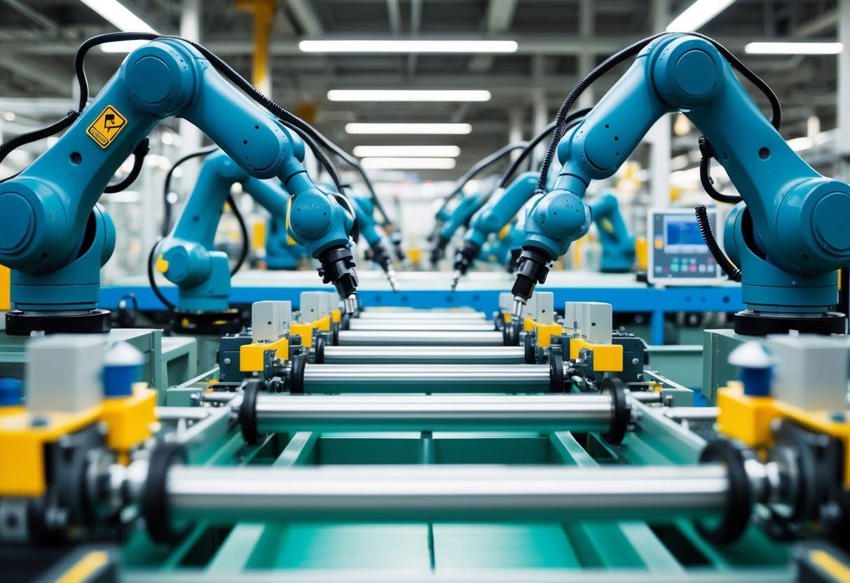
Embarking on your digital transformation journey begins by recognising the shift from traditional practices to digital-driven approaches. It's a process where you integrate digital solutions into every function of your manufacturing business. But digital transformation isn't just about adding new tools; it's about improving business operations to enhance your manufacturing process and create an increase in productivity.
For manufacturers, understanding this journey means focusing on incorporating technologies like the Internet of Things (IoT), data analytics and cloud computing. These key components of digital transformation help streamline manufacturing processes, reduce costs and generate an increase in productivity. Embracing this transformation ensures you stay competitive in a world that increasingly values smart manufacturing and efficiency.
Digital technologies, including automation and artificial intelligence, enhance production capabilities in the manufacturing industry. By taking advantage of these opportunities for manufacturers, you can transform your business, take data-driven actions and achieve smart manufacturing.
The role of digital solutions is to improve flexibility and customisation in production lines. With real-time data analytics, you gain insights into every aspect of your daily operations. This results in optimised performance and greater responsiveness to market changes. As a manufacturer, adopting digital technologies allows you to fulfil customer demands more efficiently while improving product quality.
In the manufacturing sector, digital transformation initiatives are driving improvements. It helps in streamlining operations and boosting productivity through the use of advanced technologies. Key areas include machine learning for better quality control, supply chain optimisation and the adoption of digital twins.
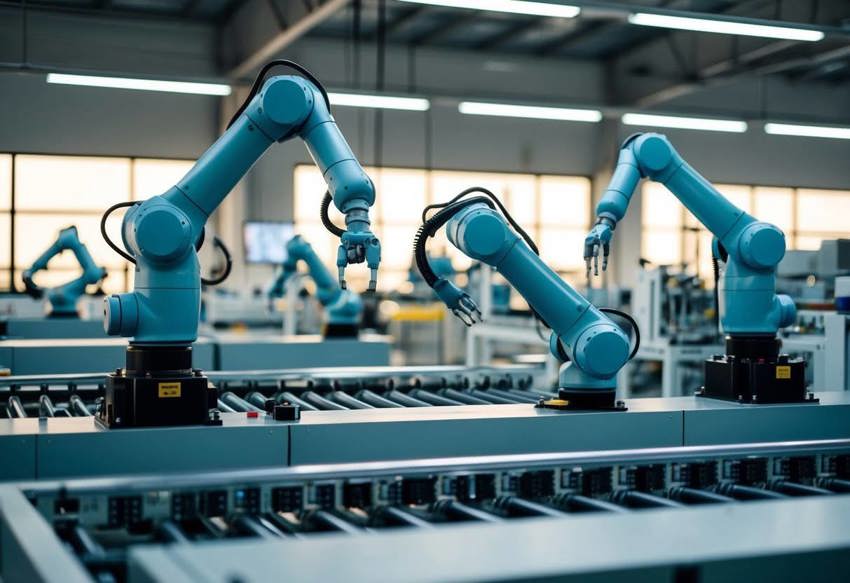
Machine learning can enhance quality control within production processes. By analysing vast datasets, machine learning algorithms can detect patterns that humans might miss. This enables you to identify defects or inefficiencies early on, reducing waste and improving overall product quality. Incorporating machine learning in your manufacturing analytics can help in predicting equipment failures and scheduling corrective actions, minimising downtime.
This approach not only ensures high-quality standards but also increases efficiency across digital processes. Implementing machine learning can lead to a significant improvement in the reliability of your production lines.
Supply chain management is pivotal in digital manufacturing, and its optimisation is essential for efficient production. You can benefit from real-time data analysis to forecast demand and manage inventory more accurately. By integrating digital tools into supply chain management, it's possible to enhance communication between suppliers, manufacturers and customers.
This leads to reduced lead times and ensures timely delivery of products. The use of advanced technologies in managing supply chains also means you can quickly adapt to changes in demand or disruptions in supply, maintaining smooth operations.
Digital twins have emerged as a transformative technology in production processes on the factory floor. These virtual models replicate physical systems, allowing you to simulate and analyse processes in real-time. By using digital twins, you can experiment with different scenarios and foresee outcomes without risking actual operations.
This technology aids in improving the efficiency and flexibility of manufacturing processes by providing invaluable, actionable insights. Digital twins also support predictive maintenance and the optimisation of production lines, leading to enhanced operational performance and decreased production costs. By adopting digital twins, you are better equipped to respond to evolving market demands swiftly and effectively.
Digital transformation in manufacturing, like adopting additive manufacturing or implementing artificial intelligence, requires strategic collaboration between leadership and skilled workers. This approach not only enhances efficiency but also supports sustainable practices by integrating efficient energy resources and reducing waste.
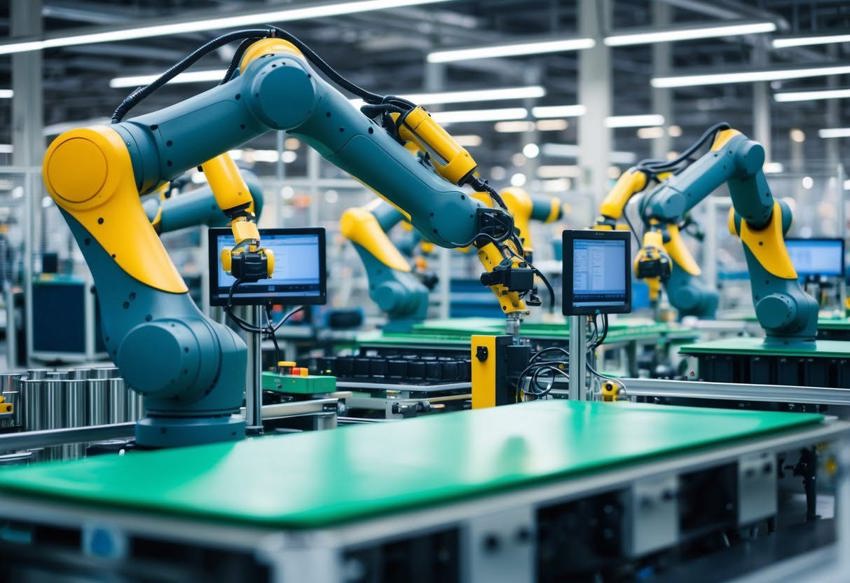
For successful digital transformation, skilled workers and manufacturing leaders should be able to collaborate effectively. Skilled workers can drive innovation when encouraged to develop their expertise in new technologies, while leadership plays a vital role in setting strategic goals and ensuring smooth implementation.
When your team aligns its efforts, you can create a cohesive environment that maximises productivity and boosts performance. Leaders should create an environment of open communication to ensure that everyone understands the importance and impact of digital innovations.
Digital technologies offer significant opportunities for manufacturers to enhance sustainability initiatives. By adopting energy-efficient systems and reducing material waste, your company can minimise its environmental impact. These technologies enable real-time monitoring and data analysis, improving resource management. With net zero requirements coming into force, tools like Dynamics 365 Business Central can help you identify areas where you can reduce your environmental impact and fulfil your reporting obligations.
Manufacturing CIOs must prioritise sustainable practices to not only comply with these regulations but also improve your company’s reputation. Sustainable practices have the additional benefit of leading to lower production and maintenance costs, creating a competitive advantage in the market.
Adopting digital transformation in the manufacturing sector comes with some challenges. Key areas include managerial and cultural shifts, technological and financial considerations and the real-world application of new tools. Addressing these effectively is key to making sure your digital transformation project is successful.
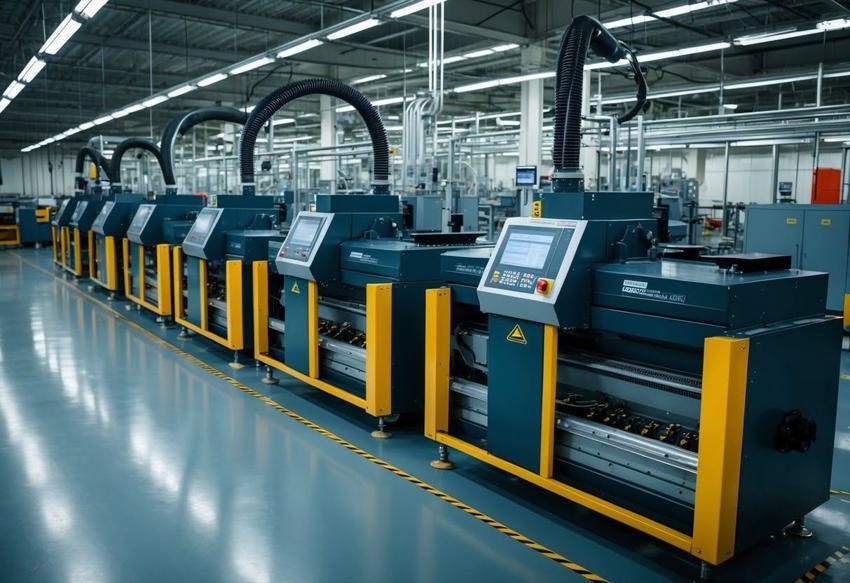
Shifts in management and company culture may be needed for your transformation project to succeed. Your management team must be prepared to champion technological innovation and change. Emphasising open communication and active participation is essential.
Cultural change involves reshaping mindsets to embrace new technologies. Educating employees about potential business model transformation and the role of digital tools can help reduce resistance. Regular training and workshops enable teams to handle new solutions confidently, reducing human error and building a digitally forward-thinking workforce.
Technological limitations and a lack of digital skills can hinder the adoption of new systems. It’s important to assess your current digital transformation level and identify areas needing improvement or investment. A detailed cost-benefit analysis helps in showcasing the long-term benefits of new technologies.
Often, employees can be resistant to new technology either because they're comfortable with their existing systems or they don't have the digital skills required for the new solutions. In your training sessions, highlight how these systems improve their ways of working and how they can transfer some of their skills from their existing systems into using the new one.
Digital transformation is already reshaping manufacturing with a focus on data-driven actions and strategies. Embracing new technologies allows you to turn raw data into valuable data-driven actions, optimising production processes and improving efficiency. By analysing this data, you can make informed decisions that result in cost savings and better resource management.

As the business environment evolves, it's important to stay competitive. Keeping up with digital transformation trends in manufacturing can give you an edge. Adopting advanced technologies like artificial intelligence, the internet of things (IoT) and robotics will help streamline operations and increase productivity. Technologies like predictive analytics can also assist in predicting maintenance needs and preventing costly downtime.
Understanding the long-term perspectives of digital transformation requires you to embrace continuous learning and skill development. Developing a skilled workforce capable of harnessing these technologies is key to success. Training and upskilling your team will ensure they can effectively utilise new tools and methodologies.
Incorporating digital solutions not only enhances your operations but also creates a culture of innovation. New product lines, improved customer satisfaction and sustainable practices can emerge as a result. By keeping an eye on these future trends, you can position your business for long-term success and growth in the ever-evolving manufacturing landscape.
Digital transformation is transforming how manufacturing companies enhance efficiency. It involves strategic approaches, using technology to streamline processes and understanding how to tackle potential challenges that might arise during implementation.
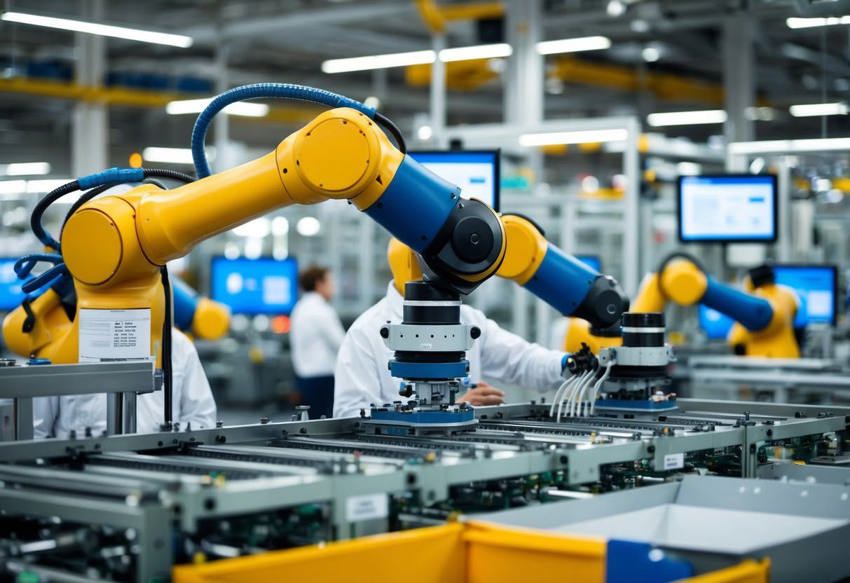
There are lots of strategies that offer opportunities for manufacturers. To enhance efficiency, focus on integrating automation and manufacturing analytics. By adopting these strategies, you can improve production speed and quality. It's also important to prioritise employee training for seamless technology adoption.
Technology like digital adoption platforms can streamline operations by simplifying user interaction with new systems. Automation tools further help in reducing manual errors and increasing throughput. These improvements contribute significantly to a smoother transformation process.
Digital transformation helps in maintaining long-term efficiency by constantly updating processes and technology. This approach ensures that your operations are sustainable, efficient and can adapt to future challenges, keeping your manufacturing processes competitive. Businesses who don't embrace digital transformation run a high risk of falling behind the competitors who do, because their operations will be optimised and efficient, making the business more profitable.
Challenges include resistance to change and initial costs. Address these by engaging employees in the change process and demonstrating long-term benefits. It's important to have a clear digital transformation strategy and provide training to ensure everyone understands and supports the transformation. In terms of cost, much of the upfront costs of implementing new systems can be spread via subscriptions, with only migration and potential implementation costs to consider.
Measuring success involves tracking production metrics and analysing improvements in quality and speed. If you're producing products faster or at a lower cost, or eliminating errors and anomalies in production, this is a sign that your efforts are paying off.
The Autumn brings the second major release of the year for Business Central, as part of the 2 wave annual update cycle. Here we look at the highlight features.
After a recent visit to the Digital Manufacturing 2day event in Coventry and an insightful presentation by Lord Chris Holmes, I thought I would delve a bit deeper into the current AI regulation facing UK industry.
Choosing the right ERP system when moving on from Sage 50 can shape how efficiently your business grows and adapts. If you want advanced features, greater flexibility and easier integration with familiar Microsoft tools, Microsoft Dynamics 365 Business Central is often the stronger option compared to Sage 200. As real-time data insight, automation and scalability are now necessities and not luxuries, your ERP upgrade decision is more important than ever.